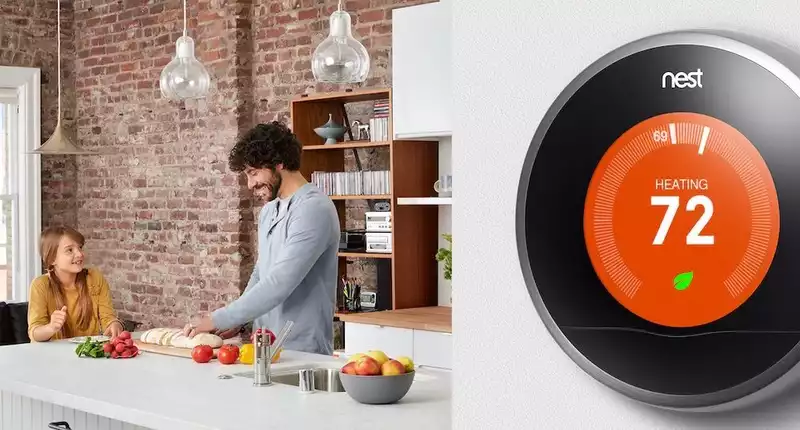At last week's Google Home Developers Conference, Michele Turner, Senior Director of Product Management, discussed how Google supports Matter.
In her presentation, she highlighted all Google Nest devices that support Matter, whether via built-in Thread radio or Wi-Fi. Among the devices on the slides were the Google Nest Hub Max, Google Nest Hub (2nd generation), Nest Wifi, and the new Nest Thermostat.
Not shown: the Nest Learning Thermostat.
Yes, the iconic device that launched Nest itself a decade ago and remains one of the best smart thermostats, even though its hardware has not changed in the past six years, does not support next-generation smart home interoperability, Google later confirmed.
For those unfamiliar, Matter is a new smart home protocol supported by Amazon, Google, Apple, Samsung, and others that promises to make it easier for smart home devices to connect to each other. More importantly, it will simplify the installation of smart home devices and allow them to communicate regardless of whether they are using Siri, Alexa, or Google Assistant.
There are currently a number of competing standards, including Zigbee, Z-Wave, Bluetooth, and even Amazon Sidewalk; to make a Zigbee device talk to a Z-Wave device, for example, or connect either to the cloud, You need a smart home hub. [For example, none of Nest's products work natively with HomeKit, and Ring's cameras do not work perfectly with Google Home. Some of these problems are due to competing companies' unwillingness to work with each other, but some are due to networking issues.
During the developer conference, Google said it will release new tools next year to allow third-party developers to work with Google Home and other Matter devices. This is a good thing. Google is far behind both Amazon and HomeKit in what they can do with devices once connected.
Take the "leave the house" routine as an example: with Google Home, if you want to trigger this routine, you need to set a specific time, say a command to Google Assistant, or cancel the alarm; with HomeKit, you can use your smartphone's location information or when a smart home device is activated (such as locking the front door or turning off the lights) can trigger this event. Automation can also be triggered when a sensor detects something. For example, if the Ecobee smart thermostat detects movement, it can tell HomeKit to automatically turn on the lights in that room, and it can also specify when that action should occur.
The same goes for Alexa. Not only do I not have to actively trigger it, but I can create routines that run automatically based on inputs from other devices in the house. Amazon can also create routines triggered by the sound of a baby crying, a dog barking, a cough or snoring.
The next step for all smart home technology, which Dave Limp, Amazon's head of hardware, calls "ambient intelligence," is for smart home devices to analyze your patterns and, based on what they think you might do suggesting actions.
It's not perfect, but when I asked Alexa about the weather this morning, she kindly told me that my commute was going to be a little late today. Unless there's a traffic jam on the stairs to my attic office, I won't be arriving at work any later than usual. [In his keynote at the Google Home Developers Summit, Turner said, "Context-driven intelligence and automation are the core and multiplier of Google's unique strengths. Making the home more proactive and useful is the North Star of our vision for the smart home." "
So, Matter promises a new future of smart home connectivity, but if you own an original Nest Thermostat, you will have to upgrade if you want to take advantage of it. While we consumers are trained to upgrade our smartphones, laptops, and TVs every few years (and we don't have to), the replacement cycle for appliances and devices like thermostats is much longer. If you install a thermostat, that thermostat will be there for 20 years, or even longer. Even if you have a 10-year-old first-generation Nest Learning thermostat at this point, you can bet that it is probably still going strong.
My mother has a KitchenAid stand mixer that she got as a wedding gift 51 years ago.
The fact that Nest has designed such a great product is a testament to that, but the problem with electronics is planned obsolescence. At some point, companies stop supporting their products and stop issuing updates to keep them functional.
Google has not said anything officially, but I expect an update to the Nest Learning Thermostat supporting Matter to be announced sometime next year. I am also confident that the current Nest devices will continue to function well into the future. It is just unfortunate that they will not be a problem.
.









Comments